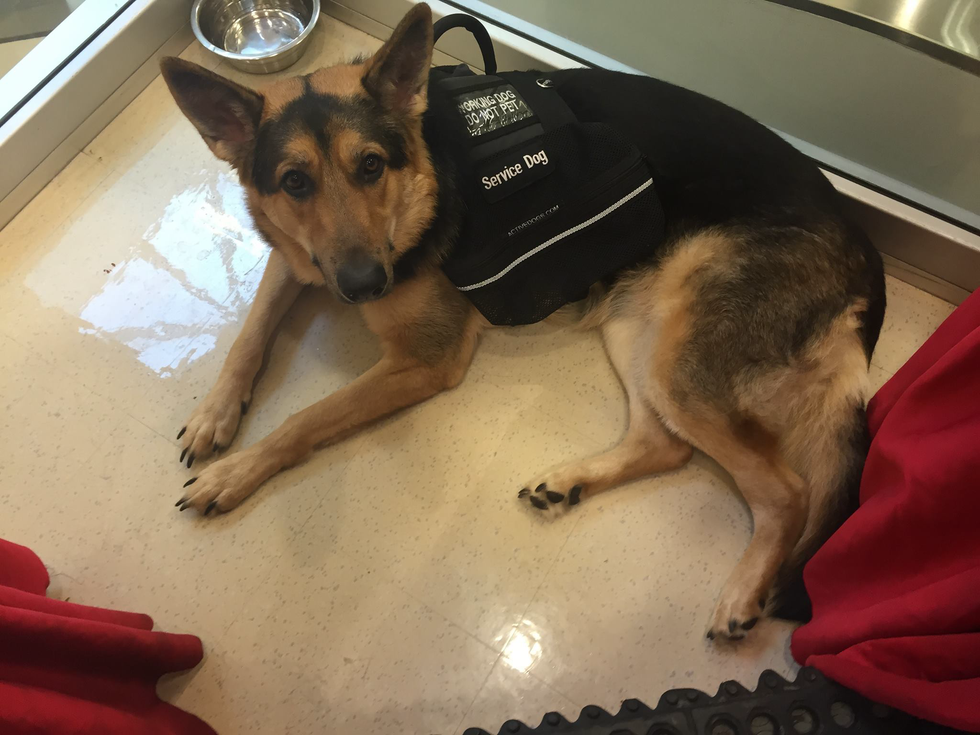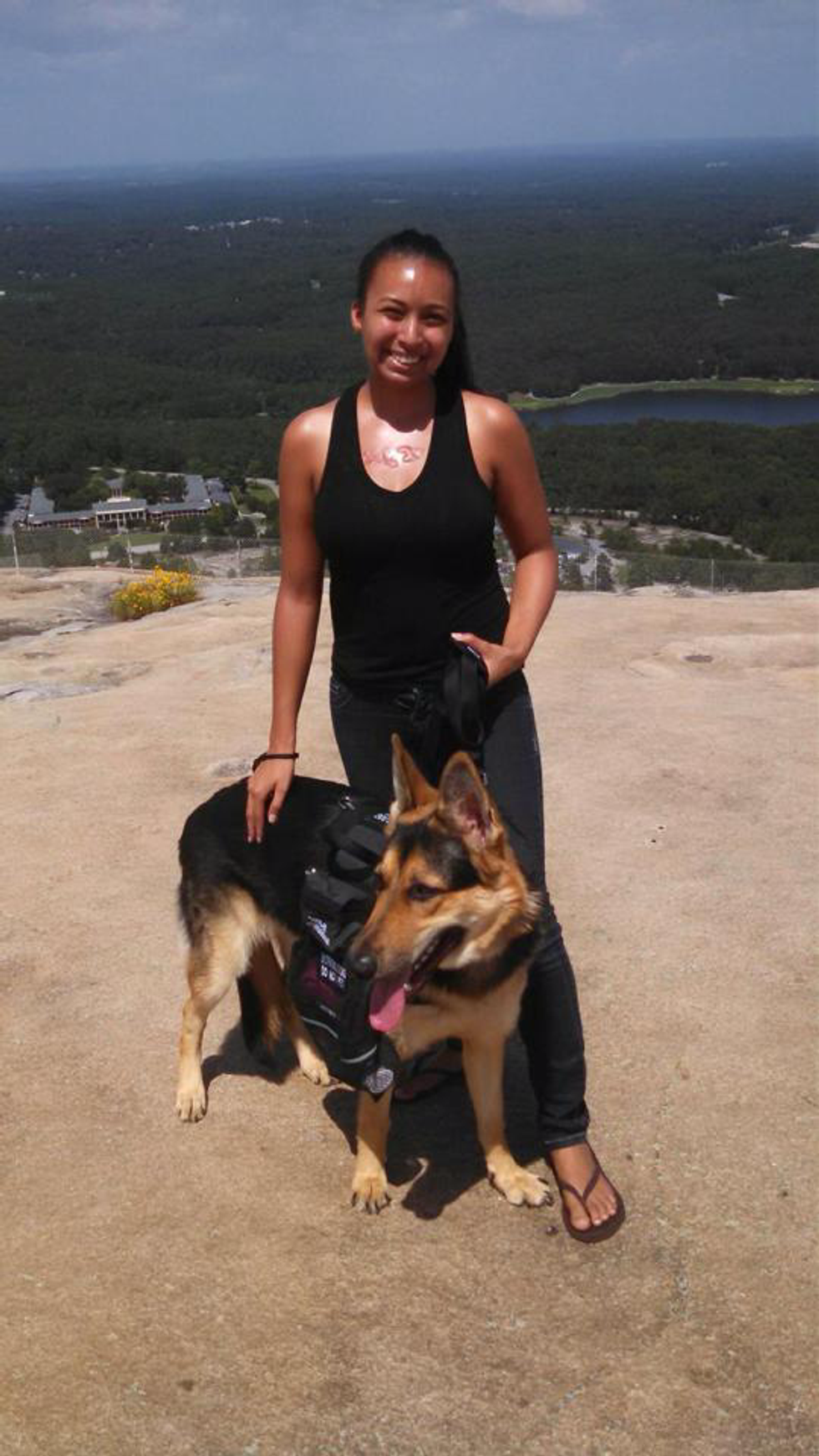We all know that college can be a very stressful time. Before you even start going you have to make sure your financial aid is set up, figure out which classes you need to be taking, make sure you have enough time between classes to get to your next one, and make sure you have the right books for each class. Then, you have nerves that start creeping up on you like it's your first day of school when you were a kid. You begin to wonder what your teacher is going to be like, or who else will be taking the class with you. You hope and cross your fingers that you might know someone in the class that you can sit next to. If you don't know anyone, you wonder who you are going to end up sitting next to and hope that you get along with them.
What if you were a student with a disability? How much more stressful could that be? What if you were a student that required a service dog? The stress doubles that much more. You begin to think about things that no one else has to think about. How will my teacher or students react to my dog? Where is the best place to sit in class? Figuring out when you can have potty time and break time?
As a college student with a service dog, these are all the things I have to go through on a day to day basis. There is a lot of planning involved and sometimes there is some anxiety that goes along with it.
I have to worry about where I'm going to sit in class because she is a 100 pound dog so she takes up quite a bit of room. I always try to be the first in class so I have first choice in my seating and I try to sit in the aisle away from the door where she can lay down on my left hand side. It's not always easy since students still manage to stumble over her at times or step on her tail forgetting that she's there.
Service dogs do a number of things. They not only help lead the blind or detect a seizure but they can do all sorts of things for a number of disabilities. For me, my service dog Emery picks things up off the floor when I drop things since at times I have weakness in my hands or I'm just having a clumsy day. Since I have a hard time bending I need her to do these things for me. She also will help support me when I am having a hard time walking. If I do need to kneel down she will come to my side and stand next to me and wait until I need to get up and she allows me to use her to stand myself up again. Having Emery with me has improved my confidence and has allowed me to be more efficient.
1. Ask if you can pet the dog- while some people will allow their service dogs to be pet, it can be very distracting and even dangerous to distract a service dog.
2. Ignore the service dog. It's ok, you won't hurt the dogs feelings if you don't acknowledge them.
3. Don't ask what kind of disability the handler has. You can ask what the service dog does for them.
Many have never seen a service dog team so it's ok to ask questions. To learn more about Service dog etiquette visit: www.anythingpawsable.com

























